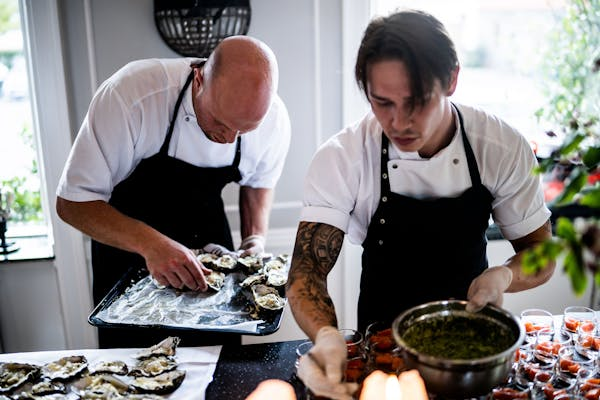7 Mental Health Skills Every Chef Needs to Master
Being a chef isn’t just about chopping onions faster than your peers or perfecting that beurre blanc. It’s a high-pressure, high-stakes game where every service feels like going into battle. If you’ve worked in a kitchen, you know the heat isn’t just from the stove, it’s from the relentless pace, the long hours, and the constant demand for perfection. So how do you keep your head straight when the pressure’s on?
1. Functional Self-Talk: Your Inner Sous-Chef
Forget about toughing it out with silence. The way you talk to yourself matters. Functional self-talk is about giving yourself the right kind of inner coaching. Replace “I’m an idiot for messing this up” with “I can fix this and move on.” This isn’t about fluffy affirmations, it’s about staying practical and focused. Think of it as having an inner sous-chef who calmly guides you instead of berating you.
2. The Power of the Pause
3. Emotional Awareness: Recognize, Don’t Suppress
Many chefs push emotions aside, thinking there’s no room for feelings in the kitchen. Bad idea. Suppressed emotions have a way of boiling over. Emotional awareness means recognizing what you’re feeling without letting it run the show. Feeling frustrated? Acknowledge it, and channel it into action rather than letting it simmer under the surface.
4. Stress Recovery as a Daily Ritual
Chefs are masters of mise en place for food, why not for mental health? Build recovery into your daily routine. After a gruelling service, do something that helps your body and mind recover: a walk, a quick workout, or even a few minutes of deep breathing. Recovery isn’t a luxury, it’s part of the job.
5. Perspective Shifting: You Are Not Your Mistakes
It’s easy to feel like a failure when a dish goes wrong or service falls apart. But one mistake doesn’t define you. Perspective shifting is about zooming out and seeing the bigger picture. A bad night doesn’t mean you’re a bad chef, it just means you had a bad night. Learn from it, adjust, and get back at it.
6. Connection: The Power of Allies
The kitchen isn’t a solo sport, it’s a team game. Building genuine connections with your crew can be a game-changer for your mental health. A team that laughs together can also support each other through the tough times. Invest in relationships and create an environment where asking for help is a strength, not a weakness.
7. Detachment: The Art of Letting Go
Every dish leaves the pass, and every service ends. Detachment is about leaving the stress where it belongs, in the kitchen. Learn to mentally clock out when you physically do. This doesn’t mean you stop caring; it means you protect your energy so you can keep caring tomorrow.
Wrapping It Up
Being a chef is hard, there’s no sugarcoating it. But with the right mental health skills, you can handle the pressure without burning out. It’s not about being invincible; it’s about being adaptable. Sharpen your mind like you sharpen your knives, and you’ll be ready for whatever the kitchen throws at you.
Bests,
Gabriello
Creator of The Mindful Chef Movement









Comments
Post a Comment